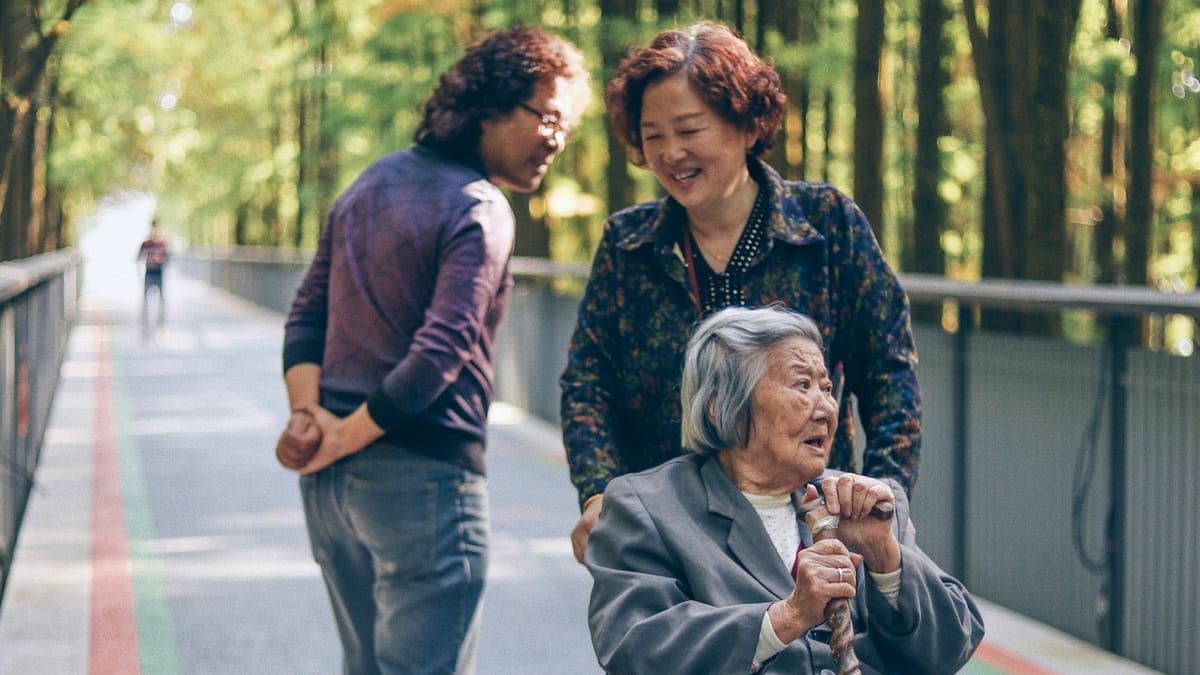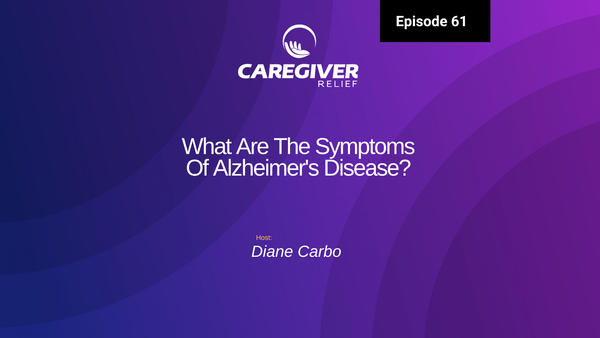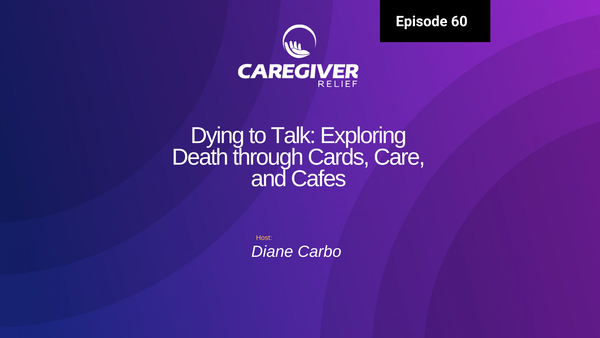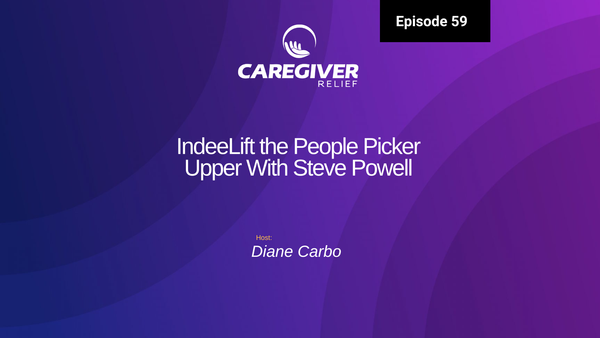Elderly Parents Moving In With Child: You Are Not Alone in Regretting Elderly Parent Care
One family caregiver shares her experience of feeling exhausted and guilty after moving her elderly parents into her home. Learn about the realities of caregiving and options for support and respite care to maintain your own health and well-being."

Has Anyone Regretted Moving Elderly Parents Into Your Home?
One family caregiver shares her experience of feeling exhausted and guilty after moving her elderly parents into her home. Learn about the realities of caregiving and options for support and respite care to maintain your own health and well-being.”
Aug 30, 2023 — 7 min read
Have you regretted moving elderly parents into your home?
Navigating the challenges of caring for elderly parents is a journey that often brings unexpected trials and emotions. In this heartfelt account, one caregiver, Sheila, shares her personal struggle and the toll it has taken on her life.
I wanted to share my experiences as a caregiver for my elderly parents, as I believe that there might be others who can relate to what I’m going through. It’s a story of mixed emotions, challenges, and the deep sense of guilt that sometimes accompanies caregiving.
After my mother suffered a stroke, I made the decision to move my elderly parent to another state and into my home. My father’s health issues, including a bad heart and severe arthritis, left him unable to care for her alone. With no hesitation, I took on the role of the primary caregiver as an adult child for both of my aging parents.
Initially, I thought that having them move in with me would make managing their care easier. However, after six years, I find myself feeling utterly exhausted. The demands of caring for an elderly parent have taken a toll on me that I could never have anticipated. Caring for a dependent older adult requires significant time and stress management, which has impacted my health and family dynamics. I’ve heard stories from other family members in various support groups, but I never thought I would be so overwhelmed myself.
My father has since passed away, leaving me to continue caring for my mother. She has always been a needy individual, dealing with mental health issues and frequent bouts of anxiety and panic attacks. The stroke has exacerbated her physical and mental health challenges, making every day a struggle.
It’s not just the physical and emotional exhaustion that weighs on me; it’s the sacrifices that I’ve had to make. Friends and family who haven’t experienced this kind of caregiving often don’t understand why I can’t simply go out or take a break. I yearn to do things as simple as going to a movie or celebrating our anniversary, but without respite care or family members who can help, my options are severely limited. These sacrifices, however, also serve as a model of compassion and commitment for my own children, teaching them the importance of caring for family.
The constraints on our lives are profound. Vacations are out of the question, and even simple outings are a rarity. The isolation that comes with this role has also affected our relationships. Friends and the entire family feel uncomfortable around my elderly parent, and I can sense their reluctance to spend time with us when our attention is constantly focused on caregiving.
My partner and I have transformed from a couple with shared experiences to caregivers with little personal life. Looking ahead, it’s hard to see a life beyond caregiving in the foreseeable future. I can’t help but think about the possibility of regaining some semblance of a normal life when my mother eventually passes away – a reality that may not come for another 10 to 20 years.
I share these feelings of guilt and frustration with you, and I wonder if they’re justified. Is it wrong for me to feel this way? Thank you for giving me the space to share my thoughts and emotions.
Sincerely,
Sheila
Dear Sheila,
Thank you deeply for opening up and sharing your journey with us. I want you to know that you are not alone in this experience. When a parent moves into your home, life undergoes a profound shift. Many who embark on similar paths, whether bringing parents into their own homes or moving into their parents’ homes, end up facing unexpected challenges and regrets.
Our intentions as caregivers are rooted in compassion and love, yet the reality of what it entails often takes us by surprise. The commitment to keeping a loved one at home carries complexities that we can’t fully comprehend until we’re immersed in the role. This journey demands far more time, energy, and emotional resilience than we ever anticipated. As people live longer lives, the caregiving span can extend up to two decades, during which time the demands on us grow exponentially, even as health may not.
Advocating for the well-being of our aging family members is essential, but it should not come at the cost of our own physical, emotional, and financial health. I believe that maintaining a healthy balance between caregiving and one’s personal life is crucial. Caregivers should not have to bear the burden if it means compromising their own families or their well-being. It’s a difficult decision, but sometimes transitioning to professional care might be the best option for everyone involved.
The toll caregiving takes on you is real, and recognizing the need for self-care is not selfish—it’s vital. Our own relationships and connections are like life-giving water to a plant, and neglecting them can lead to isolation and burnout. We advocate for a team-based approach in providing care to aging parents. Caregiver support is essential, and it’s a crisis that our society needs to address collectively.
I recommend exploring avenues that offer respite care and support. Short breaks, even for personal errands or to nurture your own well-being, can have a transformative impact. It’s crucial to remember that you are not alone in this journey, and there are resources available to ease the load.
Consider joining the New To Caregiving Course, followed by the advanced course, How to Be A Patient Care Advocate for Family Caregivers. These courses are designed to equip you with tools to build a support network, whether it’s composed of family, friends, or other resources.
Remember, your health and well-being are paramount. Without a strong foundation of self-care, the caregiving journey becomes unsustainable. You are an indispensable piece of the caregiving equation, and your well-being is crucial to the well-being of all those you care for.
With empathy and support,
Diane Carbo,RN
Sheila’s story sheds light on the complex realities of caregiving and the importance of recognizing one’s own well-being amidst the responsibilities. It serves as a reminder that caregivers deserve understanding, support, and resources to navigate this demanding role.
Preparing for the Move
Preparing for an elderly parent to move in with you requires careful planning and consideration. Start by assessing your home’s safety and accessibility. Simple modifications, such as installing handrails, widening doorways, and creating a safe and accessible bathroom, can make a significant difference in ensuring a comfortable and secure living environment for your elderly parent.
Beyond the physical adjustments, it’s crucial to discuss and agree upon household responsibilities, boundaries, and expectations with your parent and other family members. This open communication can help prevent misunderstandings and ensure a smooth transition.
Emotionally, the move can be challenging for your parent, who may be leaving behind a familiar home, friends, and community. Be patient and understanding during this transition period. Encourage your parent to maintain social connections and engage in activities they enjoy. This support can help them adjust to their new living arrangement and feel more at home.
Evaluating Care Needs and Options
Evaluating your elderly parent’s care needs is a critical step in determining the best living arrangement. Start by assessing their physical, emotional, and cognitive abilities to identify areas where they may require assistance. Consider factors such as mobility, medication management, personal care, and social interaction needs.
Exploring care options is equally important. Look into in-home care, adult day care, and assisted living facilities to find the best fit for your parent’s needs. Research local resources, such as home health care agencies, geriatric care managers, and elder law attorneys, who can provide valuable guidance and support. Involving your parent in the decision-making process is essential, as it respects their autonomy and preferences, ensuring they feel valued and heard.
The Weight of Regret for Family Caregivers
Moving an elderly parent into your home can be a life-changing decision, and it’s essential to consider the potential weight of regret that may come with it. Regret can stem from various aspects, such as the impact on your relationship with your parent, the strain on your family dynamics, or the financial burden that comes with caregiving. To mitigate the risk of regret, it’s crucial to have open and honest discussions with your parent and other family members about the decision. Evaluate whether it might be better for your parent to stay in their own home with at-home care services, as this option can sometimes better meet their needs. Consider seeking the advice of a geriatric care manager or elder law attorney to help you navigate the process and make informed decisions.
Accommodating Your Elderly Parent’s Needs
Accommodating your elderly parent’s needs requires flexibility, patience, and understanding. Be prepared to make adjustments to your daily routine, including meal times, sleep schedules, and social activities. Encourage your parent to maintain their independence by allowing them to perform tasks they are capable of, such as cooking, cleaning, or managing their finances.
Respecting your parent’s boundaries and personal space is also crucial. Ensure they have a comfortable and private living area, and allow them to decorate their space with familiar items from their previous home. By accommodating their needs and respecting their autonomy, you can help your parent feel more comfortable and secure in their new living arrangement.
Navigating Family Dynamics and Support
Navigating family dynamics and support is crucial when an elderly parent moves in with you. Open and honest communication with all family members, including your parent, spouse, children, and other relatives, is essential. Discuss expectations, boundaries, and responsibilities to ensure everyone is on the same page.
Establishing a support network is also vital. Include friends, family members, and professional caregivers to help with caregiving responsibilities. Don’t hesitate to ask for help when you need it, and consider seeking guidance from a geriatric care manager or elder law attorney to navigate complex family dynamics and caregiving challenges. This support can make a significant difference in managing the demands of caregiving.
Overcoming Regret and Guilt
Overcoming regret and guilt is a common challenge for adult children caring for an elderly parent. It’s essential to acknowledge and validate your feelings, recognizing that caregiving can be a complex and emotionally demanding experience.
Practice self-care and prioritize your own physical, emotional, and mental well-being. Seek support from friends, family members, or a therapist to help you cope with feelings of regret and guilt. Remind yourself that you are doing the best you can, and that your parent’s well-being and safety are your top priority.
By acknowledging and addressing these feelings, you can work towards overcoming regret and guilt, and focus on providing the best possible care and support for your elderly parent. Remember, you are not alone in this journey, and seeking help is a sign of strength, not weakness.
Caregiver support- You Are Not Alone
Feeling Guilty about Long Term Care Placement?
You might also like this article:














